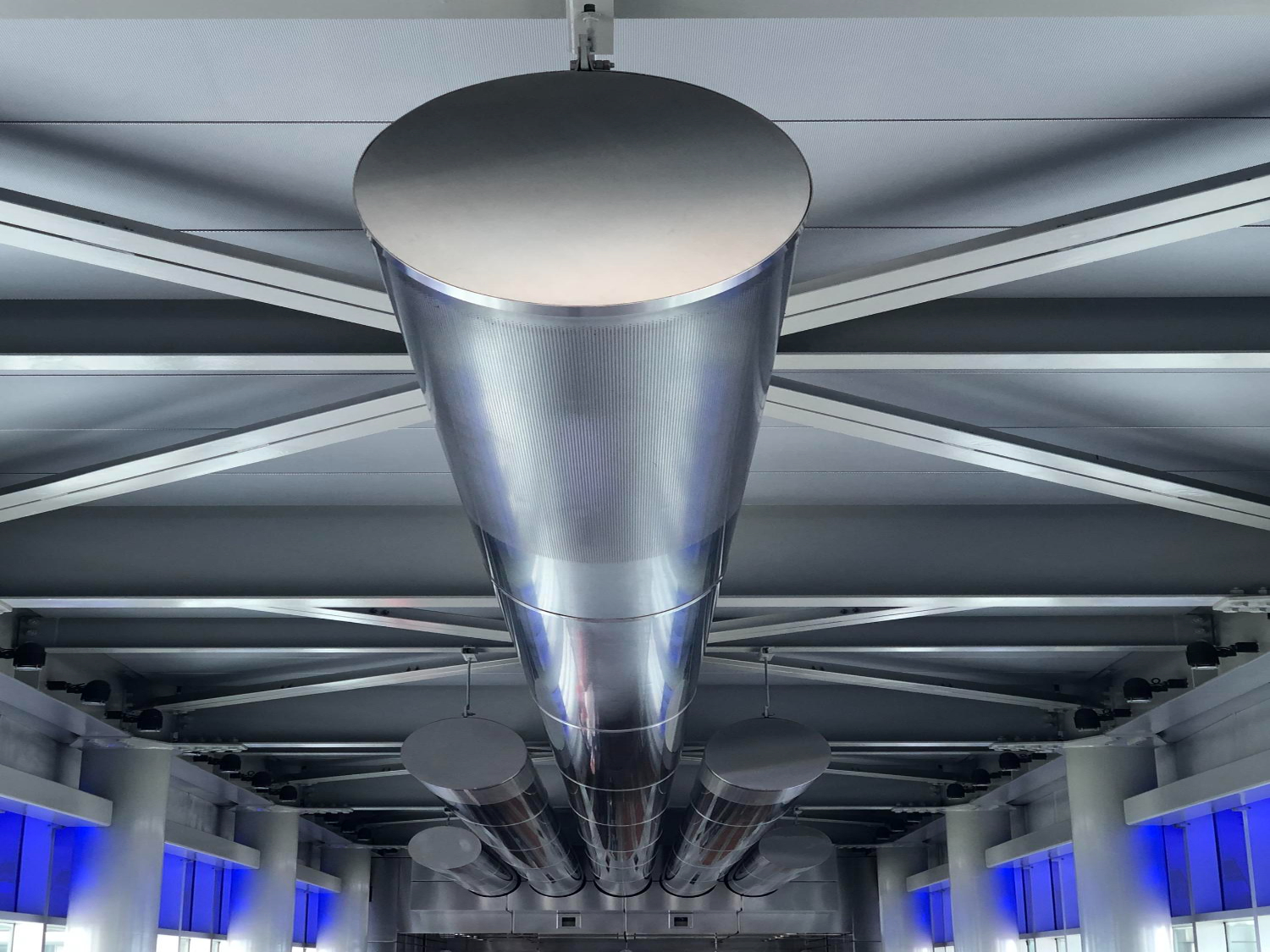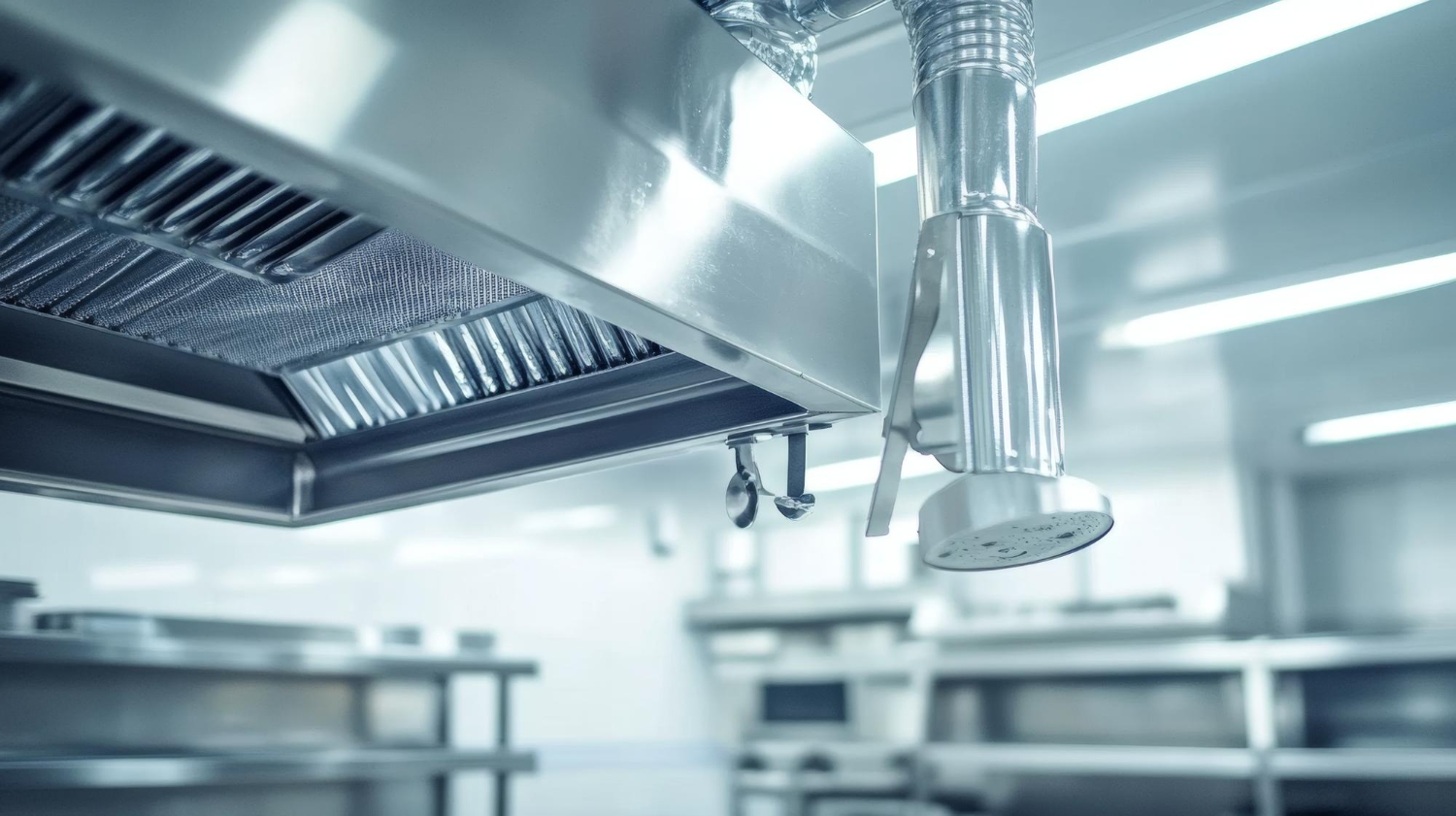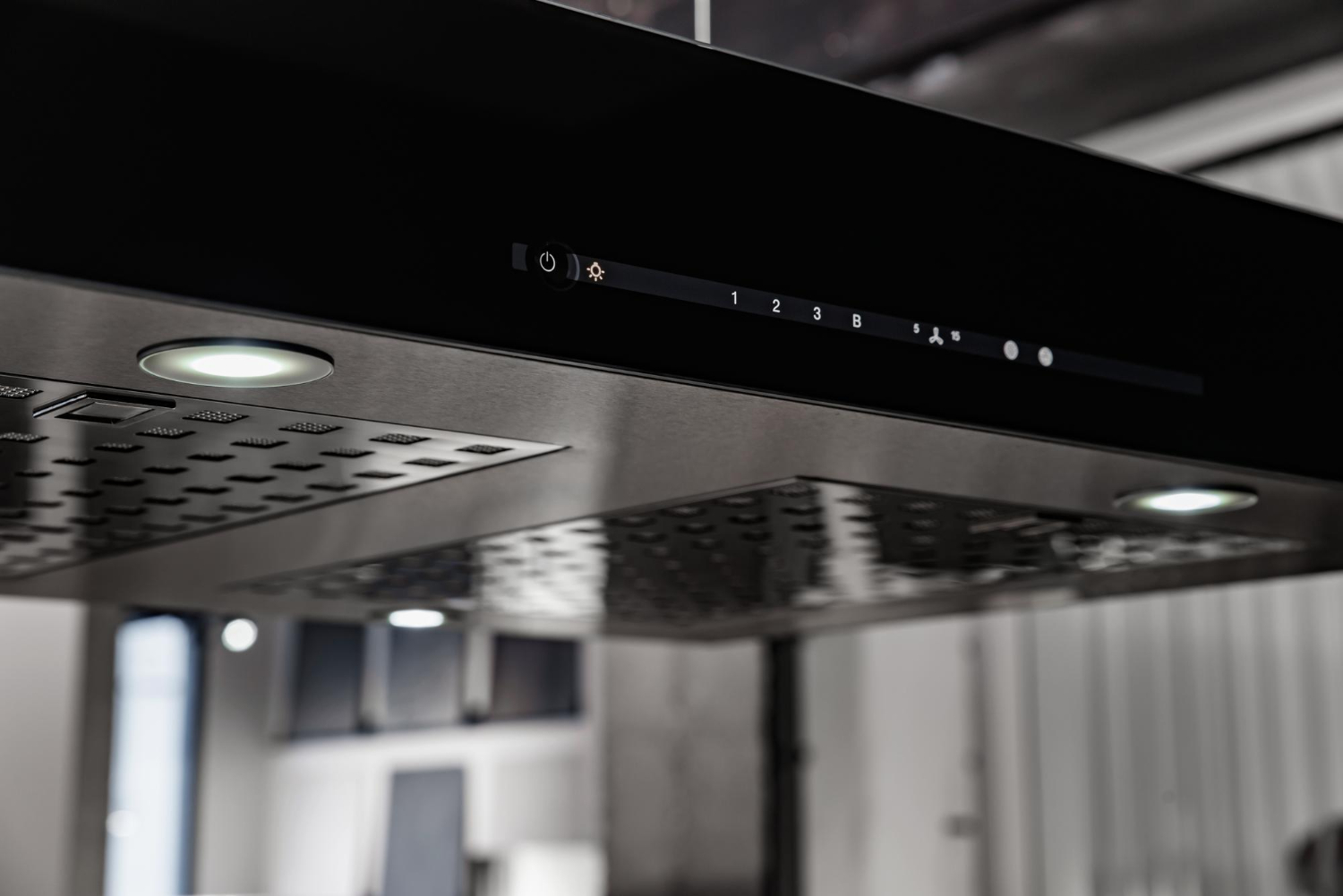Smoke-free environments
Download Pdf
In professional kitchens, laboratories or chemical plants, industrial extraction hoods made of stainless steel represent a technical solution of great value for environments where cleanliness and safety are a priority, as these systems are responsible for keeping the air free of vapours, grease, and polluting particles, guaranteeing adequate and healthy working conditions.
It is no coincidence that stainless steel is the predominant material in these installations. It offers specific advantages that make it the most requested material. Its resistance to corrosion allows it to withstand high humidity and aggressive environments without compromising the structure or external appearance of the hood. On the other hand, the uniform surface prevents the accumulation of residues and facilitates frequent cleaning, a common requirement in environments where food or chemical substances are handled.

Among the available options, stainless steel grade AISI 304 is widely used in hoods intended for the food sector and in industrial kitchens. It offers a balance between mechanical resistance and ease of maintenance, qualities that are highly appreciated when the objective is to guarantee continuous and safe operation. This grade withstands exposure to vapours, grease, and slightly acidic solutions. Its behaviour at moderately high temperatures makes it suitable for hoods installed on ovens, griddles or fryers. Its adaptability makes it possible to create designs tailored to each space, ensuring aesthetic and functional integration in any kitchen or industrial workshop. In addition, AISI 304L stainless steel, a low-carbon variant of AISI 304 (indicated by the "L"), enables welds that prevent intergranular corrosion, a common problem in joints made with the wrong material.

The AISI 316 grade is used in tougher spaces, such as pharmaceutical installations, chemical laboratories or industries where the environment contains salts or corrosive chemicals. The presence of molybdenum in its composition increases resistance to localised corrosion, especially that caused by chlorides. This behaviour offers greater safety in processes where saline solutions or harsh chemical agents are handled, avoiding premature failures in the structure. In addition, AISI 316 retains its mechanical properties in environments with high humidity and changing temperatures, which helps extend the service life of the hood and reducing maintenance costs. There is also the grade AISI 316L, with low carbon content, which improves welding performance and prevents intergranular corrosion in joints. Its ability to maintain an impeccable appearance even in demanding conditions reinforces its value in environments where visual cleanliness is also essential.
If you have any questions about the material, please do not hesitate to contact us. We will be happy to help.